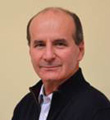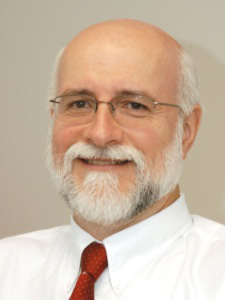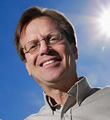17 June 2014
View Webinar Content
Presentation—Introduction to the webinar and panelists
Presentation—Richenda Van Leeuwen: Energy Access in Central America
Presentation—Arnaldo Vieira de Carvalho: Energy Access in Central America
Presentation—Richard Hansen: PV Potential in Central America: The Sun Shines for All
The Clean Energy Solutions Center, in partnership with the United Nations Foundation’s Energy Access Practitioner Network, hosted this webinar showcasing the work underway in Central America around energy access using low carbon solutions and off-grid renewable technologies. The webinar is part of the broader work that the UN Foundation is undertaking on energy access within the UN and the World Bank’s Sustainable Energy for All initiative. It began with an overview of the Energy Access Practitioner Network by Richenda Van Leeuwen of the UN Foundation. Panelists then shared their reflections on various country priorities and approaches, the ongoing efforts around independent power producers and stand-alone solutions for rural electrification in the region—particularly in addressing the needs of the residual underserved communities.
Panelists
 Richenda Van Leeuwen, Executive Director, Energy Access Initiative
Richenda Van Leeuwen, Executive Director, Energy Access Initiative
Presentation
Richenda Van Leeuwen is Executive Director of the Energy Access Initiative, overseeing the UN Foundation's work on energy access and its engagement with the UN’s Sustainable Energy for All Initiative. She founded and leads UN Foundation’s Energy Access Practitioner Network, a 900-strong global network catalyzing market-led solutions for energy access in developing countries. She joined the UN Foundation in 2010 from Good Energies, a global renewable energy private equity firm where she led its work both on commercial emerging markets transactions and as a founding board member of the Good Energies Foundation, on the application of renewable energy technologies for poverty alleviation in developing countries. Prior to this, she served as the Executive Director of Trickle Up, an international microenterprise development non-profit organization from 2001 to 2005. A sought-out speaker on energy access, gender equity and poverty issues, she has over 20 years of executive management experience with the UN, private sector and non-profits on several continents, in particular focusing on impact investing for micro- and small and medium sized enterprises as well as post-conflict reconstruction, refugee issues and economic empowerment. She serves on the board of SELCO India, a leading renewable energy social enterprise focusing on energy solutions for poor families in India. She gained both her BS and MBA degrees from Durham University, UK.
 José María Figueres Olsen, Former President of Costa Rica, Current President of the Carbon War Room
José María Figueres Olsen, Former President of Costa Rica, Current President of the Carbon War Room
After a successful business career (1979-1987), José María Figueres Olsen served as Minister of State and he was later elected President of Costa Rica at the age of 39. He served from 1994 to 1998. As President, he created a comprehensive national development strategy based on the tenets of sustainability: sound economics, investment in human development and a strong alliance with nature. José María pioneered the linkage between sustainable development and technology, which he continued after government by helping create and then leading the United Nations ICT Task Force as its first Chairperson (1999). He was the first person to become CEO of the World Economic Forum (2003), where he strengthened global corporate ties to social and governmental sectors. Later he was named CEO of Concordia 21 (2006), which is dedicated to supporting organizations that promote development and democratic values around the world. Figueres joined the Carbon War Room in 2009, and currently serves as its President. The organization accelerates the adoption of business solutions that reduce carbon emissions at gigaton scale and advance the low-carbon economy. In 2013, he helped launch the Global Ocean Commission to formulate politically and technically feasible recommendations that address key issues facing the high seas. He serves as co-Chair. José María holds an Engineering Degree from the U.S. Military Academy at West Point and a Masters in Public Administration from the Kennedy School of Government at Harvard University.
 Arnaldo Vieira de Carvalho, Lead Sustainable Energy Specialist, Energy Division, Inter-American Development Bank (IDB)
Arnaldo Vieira de Carvalho, Lead Sustainable Energy Specialist, Energy Division, Inter-American Development Bank (IDB)
Presentation
Mr. Vieira de Carvalho has worked for the IDB since 1997 on financing and implementing sustainable energy projects throughout Latin America and the Caribbean (LAC), especially on energy efficiency, renewable energy and biofuels. He has been responsible for several emblematic IDB initiatives, such as the IDEAS energy innovation contest, the SE4ALL LAC Hub and the LAC Sustainable Biofuels for Aviation Program. Mr. Vieira de Carvalho was Director of the Latin American Energy Organization - OLADE in Quito, Ecuador and General Manager for Power Generation and New Energy Technologies of Promon Engenharia, a leading Brazilian consulting firm in Rio de Janeiro and São Paulo, acting internationally, where he worked for more than 15 years. He has also worked as independent energy consultant in several Latin American countries for power utilities and international organizations such as The World Bank, the Organization of American States – OAS and several UN agencies. Mr. Vieira de Carvalho holds a Mechanical Engineering degree from the Aeronautical Institute of Technology – ITA in São José dos Campos, Brazil and a M.S. degree in energy from Kansas State University – KSU in Manhattan, Kansas. He published more than a hundred articles, technical papers and books in his field of expertise.
Richard Hansen, Founder and CEO of Soluz
Presentation
Mr. Hansen will reflect on his two decades of experience in the application of solar PV technology for rural electrification in developing countries, highlight specific successes and challenges from Soluz’s work in Honduras and the Dominican Republic, and share best practices regarding the development and support of rural energy delivery companies to meet the vast need for energy services in rural areas.
